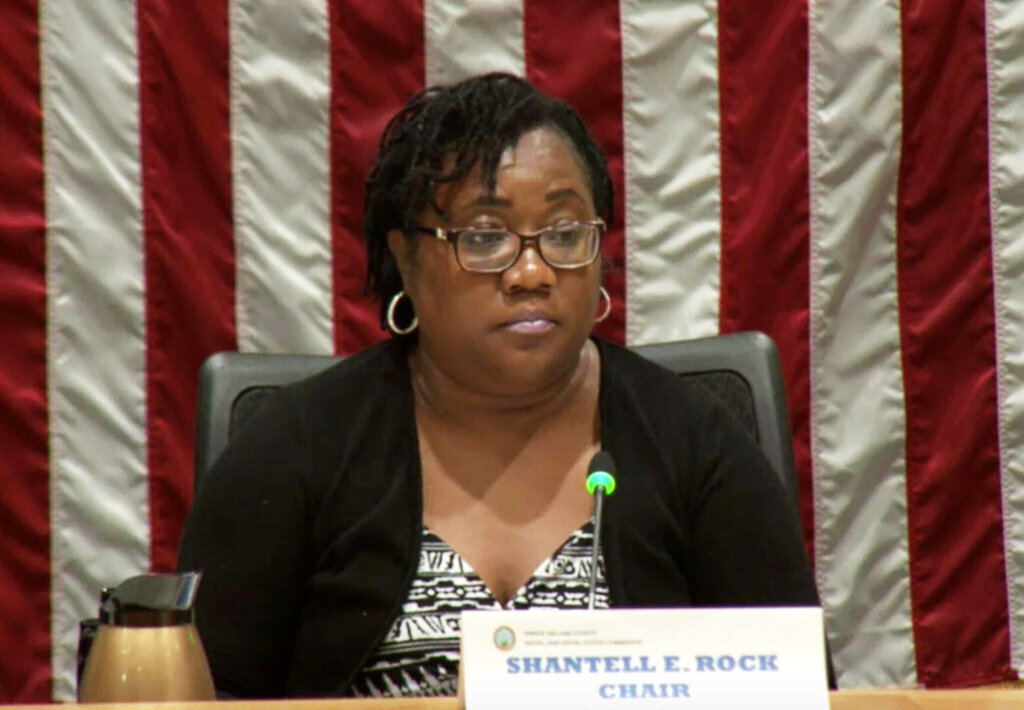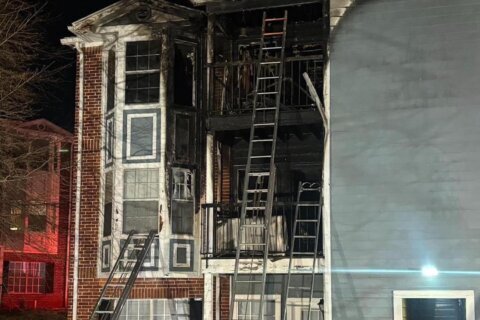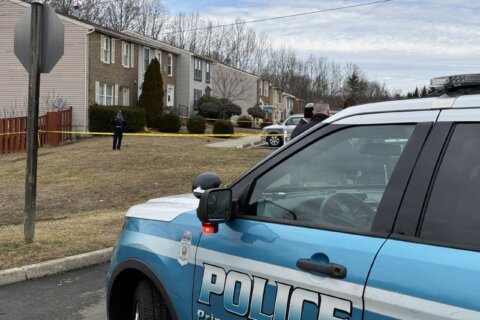This article was republished with permission from WTOP’s news partner InsideNoVa.com. Sign up for InsideNoVa.com’s free email subscription today.
This article was written by WTOP’s news partner InsideNoVa.com and republished with permission. Sign up for InsideNoVa.com’s free email subscription today.
Prince William County’s Racial and Social Justice Commission has yet to fully delve back into its work over the past five months, with meetings occasionally featuring familiar bickering and infighting.
The commission has almost exclusively discussed revisions to its bylaws in its three full meetings since presenting its initial report to the Board of Supervisors in February, wrapping up the changes at its July 21 meeting.
A fourth meeting was only used to elect officers, while another was adjourned with no action over uncertainty if it was properly noticed to the public.
The panel was tasked with delivering a report that examines “the state of racial and social justice for people of color” in the county and making recommendations to the county government. Its initial focus was on policing, the “provision of government services” and public education.
Its report, submitted late last year, broadly applauds county practices while acknowledging areas of needed growth and further study.
The Board of Supervisors agreed to allow the commission to return with a request for more time to study racial and social justice after consulting with its members. The additional work will include an examination of the causes for disparities and recommendations to address them.
Two of the group’s full meetings were marred by many of the same type of arguments and disagreements that have become familiar over the past year.
The commission has altered how it will approach its work by abandoning subcommittees and conducting all lines of inquiry with the entire panel.
The commission also wants to hire a professional parliamentarian to help members avoid lengthy disagreements over procedure that were a mainstay of its first year.

Inside NoVa sought comment on the commission multiple times from voting members of the panel, which include Police Chief Peter Newsham, School Board member Loree Williams and Human Rights Commission Chair Curtis Porter. Those who responded were Chair Shantell Rock, Coles Commissioner Mac Haddow and Gainesville Commissioner Erica Tredinnick.
At its April meeting, the commission unanimously selected Neabsco Commissioner Christopher Frederick Sr. as vice chair. Rock and Haddow were nominated to serve as chair, with Rock prevailing with seven votes to Haddow’s three.
Rock said her top goal for the start of the year was a review of the bylaws to avoid the “disorganization” of the commission’s first year to allow meetings to “move faster without as much contention.”
Rock said the bylaw changes were essential before the commission could continue its work. She has told county staff to create a spreadsheet of all the recommendations made in the initial report and determine how much time each will need.
Tredinnick said bluntly, “We haven’t gotten any work done in six months.” She criticized Rock for missing two meetings, saying, “I don’t know why anybody would commit to [being] chair if they can’t come to the meetings.”
“I would hope that we would get some sort of work done,” she said.
Similarly, Haddow said “by any objective standard,” the commission has not addressed “any issue” that was promised to the Board of Supervisors.
“Instead, the RSJC has suffered from a clear lack of leadership in addressing issues, scheduling meetings and balancing the discussions on process with the critical need to address issues impacting minority communities in Prince William County,” Haddow wrote in an email.
One amendment sets a 10 p.m. deadline for meetings to end, although they could be extended by a vote.
Williams was concerned the hard deadline would hinder presentations. “We could all do better about how we spend our time here before the commission,” she said last month. “I’m just nervous about if we set a hard stop, we’re in the middle of something … we’re effectively pushing that topic down the road and I already feel like we’re wasting time as it is.”
Tredinnick didn’t think the 10 p.m. deadline would help the commission run more efficiently. She said it would just lead to issues introduced by Haddow getting ignored at the end of the night.
The commission agreed to put any items not reached by deadline at the top of its next agenda.
Haddow said he requested that the commission study the impact of the controversial PW Digital Gateway proposal on areas where historically Black graveyards may be located. Haddow attempted to discuss his request and a review of the school resource officer program at the commission’s June 16 meeting. He did so well before 10 p.m., but his motion to suspend discussion of the bylaws to cover other issues was defeated.
Williams later moved that the meeting continue past 10 p.m. to discuss Haddow’s requests, but it was denied.
Haddow voted against Williams’ motion, saying it was disingenuous and “was a cynical ploy that ignored the fact the public would have believed the entire meeting was going to be consumed with bylaw amendments and procedural discussions.”
Rock said she needed clarity on Haddow’s request related to the digital gateway, but supported protecting cemeteries in the proposed development area.
Looking forward, Rock wants to examine gun violence in the county. She said many of the local shootings involve youth, particularly those from Freedom and Potomac high schools.
Tredinnick, who was one of the commissioners who voted in favor of dissolving the panel in December, said the appointees of Republican supervisors “don’t have much say” in the commission.
“I still firmly believe that there is zero systemic racism,” she said. “I don’t agree with continuing the hunt for it.”
To address personal and political attacks, which were rampant in the commission’s first year, Newsham in June introduced an amendment to the bylaws to allow censure of commissioners. It would have also allowed the commission to request that the Board of Supervisors remove one of its members.
“The best way to change human behavior is to have defined consequences,” he said.
Haddow adamantly opposed Newsham’s proposal, saying it would “suppress the First Amendment right” of commissioners.
“I think it strips members of this commission from their First Amendment right to disagree with the chief or members of the commission,” he said. “I see this as very targeted.”
Williams supported the measure, saying, “You still have your First Amendment rights, but there’s consequences to it.”
“I think it’s reasonable. I don’t think it’s far-reaching,” she said. “It’s still the individual’s choice to act how they would like to act. There’s just consequences to those actions.”
Frederick said the commission has been unsuccessfully trying to address decorum since its inception.
“If the shoe doesn’t fit and it doesn’t pertain to you, don’t worry about it,” he said. “We keep beating the same horse, and I don’t understand why.”
Brentsville Commissioner London Steverson said the proposal would essentially allow anyone who “gets his feelings hurt” to have a “safe space” and a “blanket.”
Newsham said the proposal didn’t suppress First Amendment rights.
“There’s a clear distinction between disagreement and disrespect,” he said. “I do think that we do need to adopt consequences against folks who think it’s going to be OK to be disrespectful against people in this room.”
The commission eventually approved a measure to promote respect among its members on a 9-3 vote.
Unlike its previous two gatherings, the July 21 meeting was markedly civil and concise.
After finishing revisions to the bylaws, Haddow made a motion to review school security and the school-resource officer program. His motion failed, with other commissioners saying school security didn’t fall under the panel’s purview.
Haddow later led a discussion focusing on the effect of the proposed PW Digital Gateway on Black cemeteries or unmarked graves in the area.
Some commissioners felt the panel should examine the county’s policies regarding cemeteries and land use rather than fixating on a particular proposal. After some discussion, the commission agreed to bring forward county officials to outline regulations for cemeteries at its next meeting.







